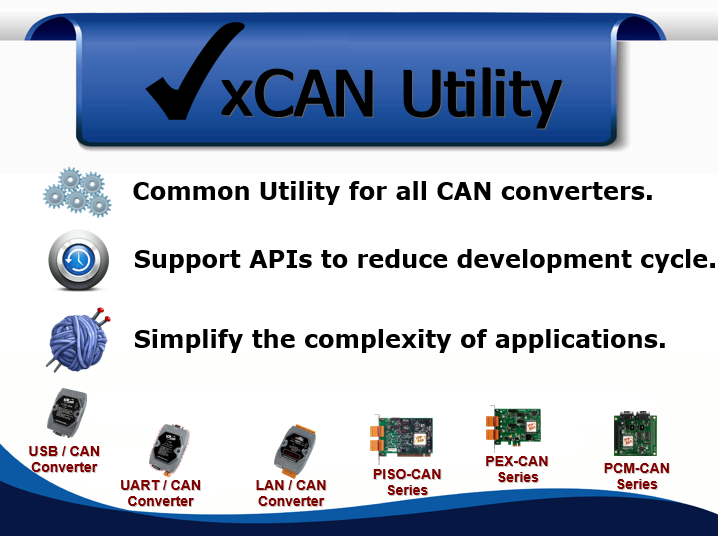
In recent years, CAN-based applications have demonstrated high degree of security and stability. More and more researches and developments of CAN-based devices have been published from the automotive and industrial domains. The VxCAN Utility, a diagnostic and test software tool, is designed to unleash the power of all CAN products of ICP DAS. It is based on the Virtual CAN driver which creates the virtual CAN ports to match the physical CAN interfaces of the installed products. The Virtual CAN driver is an integrated library and provides common API functions for all CAN converters and CAN PCI boards. When developing applications, the users need not to be familiar with the hardware-specific commands. It can simultaneously access the CAN devices with different hardware interfaces.
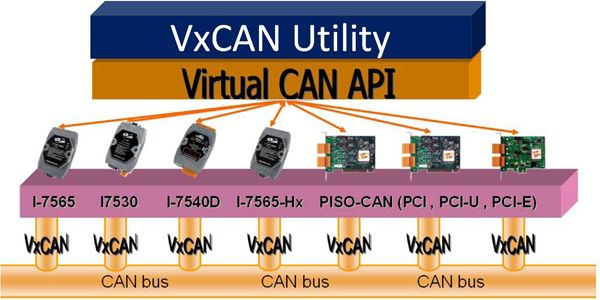
Applications
Works as a CAN Master:
The VxCAN Utility provides basic sending and receiving functions. Through these functions, the CAN product, for example the I-7530, can work as a CAN master to control the CAN slave device as the following figure. Users just need to use the VxCAN Utility to send the corresponding commands of the CAN slave devices, the responses from the slave devices are shown in the reception list of the utility. If there are several commands needed to be sent sequentially, users can use the Group Send function to access the slave devices in specific regular time.
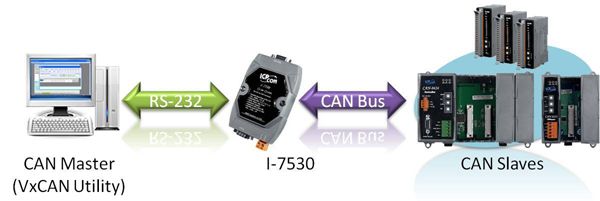
Works as a CAN Analyzer:
The VxCAN Utility could be a compact analyzer. When users would like to diagnostic the CAN network, the VxCAN Utility provides several useful functions, such as event trigger, data log and Bus loading trend. The event trigger can used to trigger the message transmission, data log or stop of messages reception. Users just need to use a CAN product such as I-7565-H2, the utility would be helpful users to monitor the communication of the network, access the CAN nodes, or diagnose the CAN Bus loading.
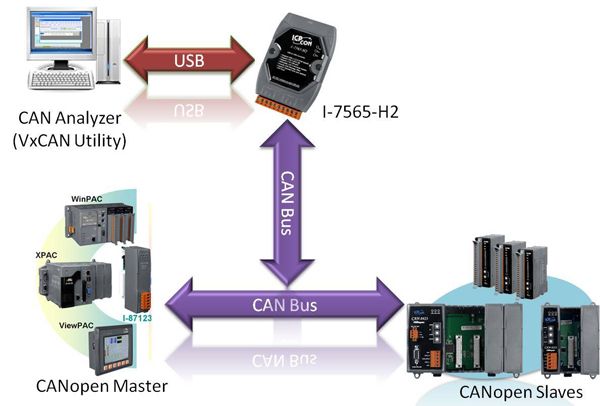
Simply and Friendly operation Interface:
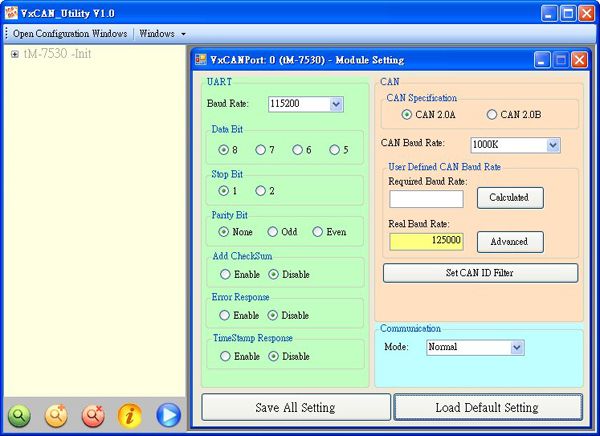
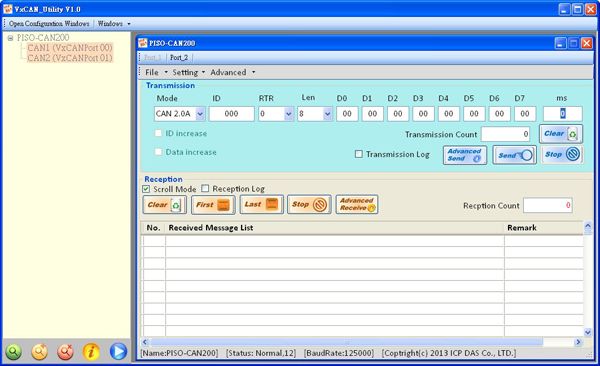
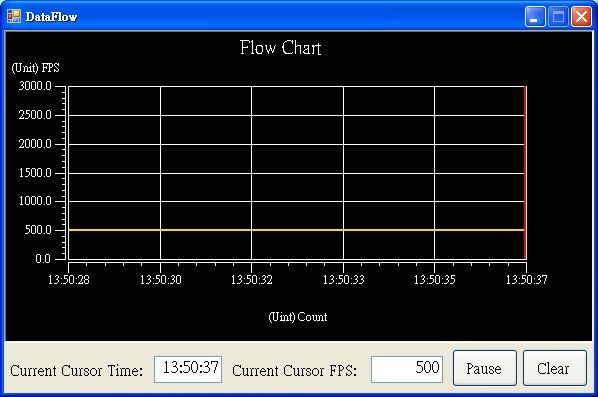
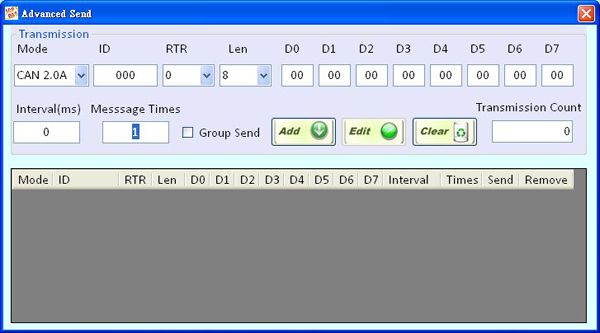
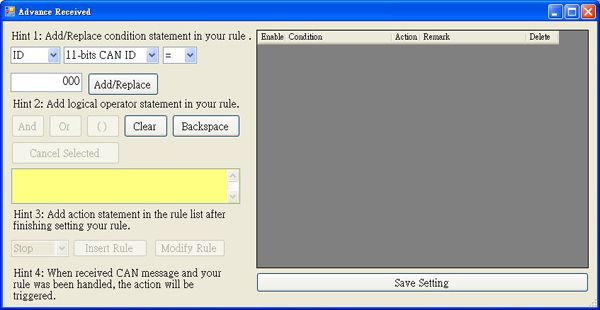
Powerful APIs:
All of the CAN products connected with the PC will be regarded as the virtual CAN bus ports of the PC. The virtual CAN driver would collect all the CAN devices connected with the PC such as Ethernet, RS-232, USB, PCI bus and PCI Express bus. And the virtual CAN driver gives each CAN port a unique sequence number which is a virtual CAN port number. Users only need to know the mapping table of the CAN devices and virtual CAN ports.
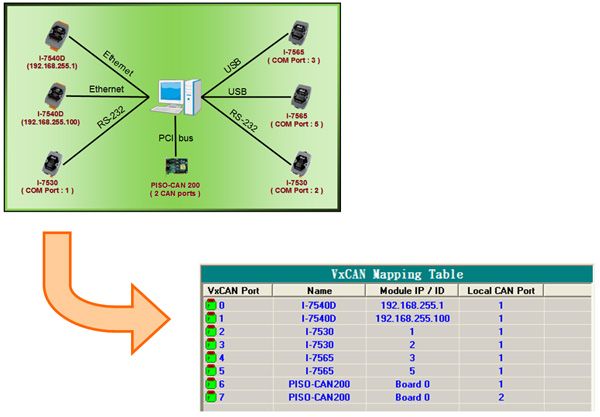
The virtual CAN ports can be accessed by the APIs of the virtual CAN driver. No matter what kinds of the hardware interfaces the CAN products have, each application can apply the same APIs to access the CAN network.
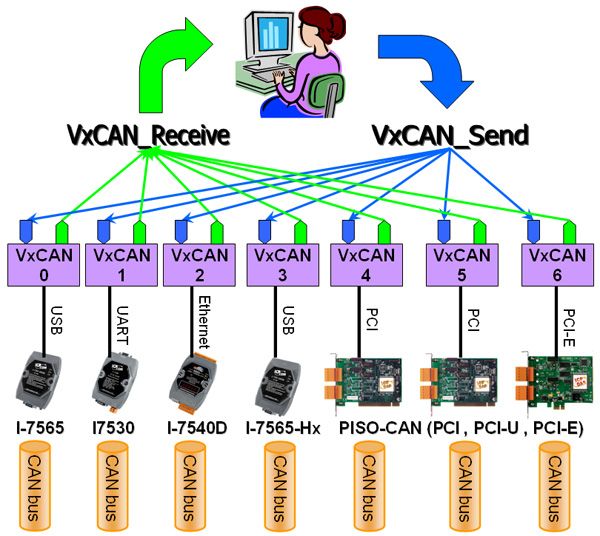
Features
- Integrates all CAN converters and CAN PCI boards in the utility
- Searches all supported CAN products installed in the system automatically
- Allows sending a predefined group of CAN messages
- Provides CAN ID filter to sieve out the unnecessary CAN messages
- Shows the CAN Bus status of the CAN product
- Provide the APIs to search the CAN products within the PC
- Provide the APIs to access CAN bus through different CAN products
- C#.NET Demos for the APIs of the virtual CAN driver
- Supports CAN message logging and Group Sending functions
|
|
|||
| Model Name | Data-exchanged Interface | CAN Port Numbers | Isolation |
|---|---|---|---|
| PISO-CAN100U-D/T |
Universal PCI bus | 1/2/4/8 | 3 kV |
| PISO-CAN200U-D/T |
|||
| PISO-CAN400U-D/T |
|||
| PISO-CAN800U-D |
|||
| PEX-CAN200i-D/T |
PCI Express bus | 2 | 3 kV |
| PCM-CAN100-D |
PCI-104 bus | 1/2 | 3 kV |
| PCM-CAN200-D |
|||
| PCM-CAN200P-D |
PCI-104+ bus | 2 | 3 kV |
| I-7540D-G |
Ethernet | 1 | 1 kV |
| I-7540D-MTCP-G |
Ethernet (Modbus TCP) | 1 | 1 kV |
| I-7530-G |
RS-232 | 1 | 3 kV |
| tM-7530 |
RS-232 | 1 | 3 kV |
| tM-7530A |
RS-232 | 1 | 3 kV |
| I-7530A-G |
RS-232/RS-485/RS-422 | 1 | 3 kV |
| I-7530A-MR-G |
RS-232/RS-485/RS-422(Modbus RTU) | 1 | 3 kV |
| I-7530-FT-G |
RS-232 | 1 | None |
| I-7565-G |
USB | 1 | 3 kV |
| tM-7565 |
USB | 1 | 3 kV |
| I-7565-H1-G |
USB | 1/2 | 3 kV |
| I-7565-H2-G |
|||



